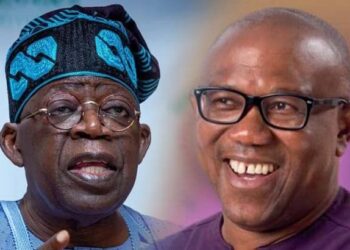 A plunging oil price gives African central banks more to think about as they move toward a cycle of raising interest rates, reports Bloomberg.
A plunging oil price gives African central banks more to think about as they move toward a cycle of raising interest rates, reports Bloomberg.
With a month to go before the U.S. Federal Reserve delivers what would be its fourth interest-rate increase of the year, African policy makers may still move to tighten to avoid a further sell-off of assets and currency weakness. Oil importers will see reduced pressure on inflation as fuel prices moderate, while those that export could see more inflation if their currencies drop.
Central bankers in Nigeria, South Africa and Zambia may follow Uganda’s lead this week and start tightening. Officials in Ghana and Kenya will likely stay put for now.
Until the crude price-plunge, “for most African countries it seemed that policy would be tighter for longer, but if oil prices continue to fall, given that it is such a large part of most countries’ imports profile, inflation would follow and the bias could eventually shift,” said Samantha Singh, an analyst Absa Group Ltd. in Johannesburg. But for producers, “the drop in oil prices could cause foreign-exchange supply challenges, which could be inflationary,” she said.
Nigeria
The oil plunge could accelerate inflation in Africa’s largest crude producer as it hits foreign-exchange revenue and adds to pressure on the naira. Higher spending ahead of February’s presidential election already poses price risks.
Inflation has been above authorities’ target for more than three years. Three of 10 Monetary Policy Committee members voted for higher rates in September, with central bank Governor Godwin Emefiele saying an increase is “likely soon.” One thing that could persuade the central bank to hold off on tighter policy for now is economic growth that’s still fragile after a 2016 contraction, according to Yvonne Mhango, the sub-Saharan Africa head of research at Renaissance Capital in Johannesburg.
Zambia
Zambia’s kwacha has depreciated more than 3 percent against the dollar in 2018, helping to drive inflation to an almost two-year high in October. This could trigger an upward move in the key rate from 9.75 percent on Wednesday.
South Africa
While a recession and falling inflation expectations in Africa’s most-industrialized economy could keep the MPC cautious, the panel has made it clear it prefers price growth closer to 4.5 percent. It predicts average consumer-price growth at more than 5 percent next year and in 2020.
“The last week or two of oil, particularly, means that it is a closer call,” Gina Schoeman, an economist at Citibank South Africa, said by phone. If they increase the rate “like we think they will, it is what the market calls a dovish hike. In other words, ‘we’re hiking but don’t worry — we’re not destroying GDP growth, we’re helping to anchor inflation’.”
What Economist Says … |
A sharp decline in oil prices since early October has changed the outlook for forthcoming monetary policy committee meetings in Africa. Lower fuel prices should prompt a more sanguine inflation outlook in South Africa and Zambia. We still expect both central banks to opt for precautionary rate hikes to reduce the risk of further currency sell-offs. |
Ghana
The global policy-tightening cycle could cause “significant challenges” for Ghana after the nation cut its key lending rate to an almost five-year low, central bank Governor Ernest Addison said last month.
Despite a slowdown in inflation and an improvement in the cedi, the MPC “cannot get too excited and too bullish,” said Courage Boti, an Accra-based economist at Databank Group. “Caution is the primary reason why the policy rate will be held. The MPC must be sure that the improvements are consolidated and overturns any potential elevation in inflation expectations.”
Kenya
Kenya was the last of the major African central banks to ease policy. While inflation is below target, more cuts could weaken the shilling further, said Kenneth Minjire, head of securities at Nairobi-based Genghis Capital. However, the pressure on the currency, which has lost more than 3 percent against the dollar since reaching its strongest this year in July, is insufficient for the panel to start raising the key rate, he said.
Angola
Angola’s inflation rate declined to 17 percent in October from as high as 42 percent in December 2016 even as the kwanza weakened the most among currencies on the continent following a devaluation. With limited transmission from lending costs to price growth, a Bloomberg surveyshows the central bank could cut its key rate to help boost an economy that’s forecast to contract for a third consecutive year in 2018.











